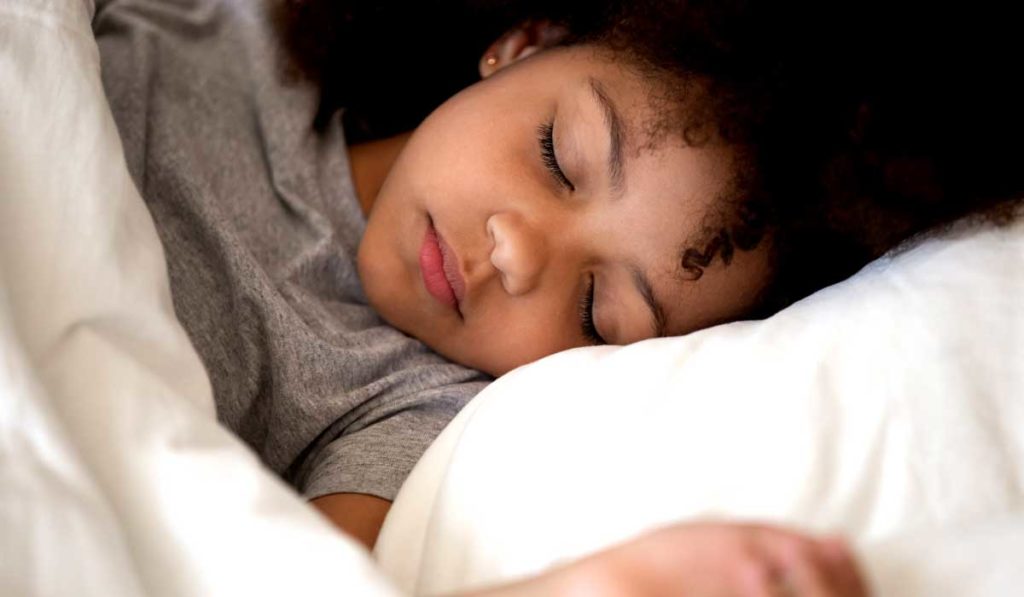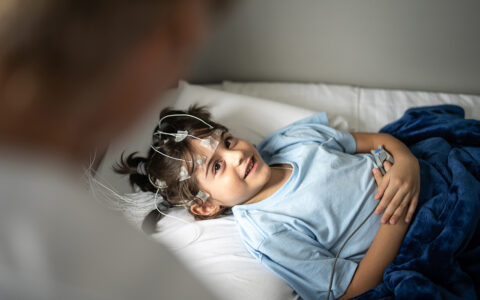With no FDA-approved medications to treat pediatric insomnia, some parents have turned to melatonin. The sleep aid is thought to help where sleep hygiene and behavioral interventions fall short. However, melatonin’s inherent role in puberty has raised concerns about its use in children.
A recent longitudinal study evaluated sleep, growth, and puberty after two years of prolonged-release melatonin in children with autism spectrum disorder (ASD). The study addressed common concerns associated with nightly use.
“The safety of melatonin has been questioned by some, mostly with anecdotal evidence,” said corresponding author Beth Ann Malow, M.D., a professor of neurology and director of the Sleep Disorders Division at Vanderbilt University Medical Center. “But we found melatonin to be safe and effective in kids with ASD.”
Sleepless Nights
Sleep problems are a particular challenge for children with ASD. Up to 80 percent of children with ASD experience insomnia, including trouble falling and staying asleep. Melatonin can be an attractive option for parents also experiencing those sleepless nights.
The custom, extended-release melatonin tablets (Circadin®) used in the latest study have already been shown to increase total nightly sleep by an hour for children with ASD. Malow and colleagues previously found daily use can improve child behavior and caregiver quality of life.
“It’s a really unique preparation. The tablets are odorless, tasteless, and about the size of a cake sprinkle, so kids with ASD can easily swallow it,” Malow said.
Puberty Concerns
Eighty children and adolescents with ASD completed the double-blinded, placebo-controlled trial. Nightly melatonin doses ranged from two to 10 mg. In addition to sleep diaries, the study included Tanner staging to track participants’ pubertal development.
Endogenous melatonin levels are normally high during prepubescence and fall around the time of puberty, Malow explained. “One of the concerns has been if you give kids extra melatonin, then their levels won’t fall, and puberty could be delayed.”
All participants had weight, height, body mass index, and pubertal status within normal ranges for their age throughout the study. “Melatonin did not make a difference in puberty trajectories or growth curves,” Malow said. “Data have been limited to substantiate this before.” The adverse effects of melatonin were primarily limited to fatigue and somnolence that occurred after dose escalation.
“Melatonin did not make a difference in puberty trajectories or growth curves.”
Risks and Benefits
The two-year study offers reassurance to parents and providers, Malow said.
“Based on these data, we did not see any concerns about the use of melatonin. In fact, melatonin can help a lot of kids, particularly those with autism who have difficulty sleeping. The benefits do appear to outweigh any risks.”
She notes children and adolescents taking melatonin in the study had fewer sleep disturbances and spent less time co-sleeping. However, Malow does recommend that caregivers discuss melatonin use with their child’s pediatrician since it can interact with other medications.
“You really have to look at the risk-benefit ratio. If there’s a kid who isn’t sleeping, this is going to affect overall health and well-being. It’s important to look at the big picture. This is really helpful in showing melatonin is a safe option,” Malow said.






